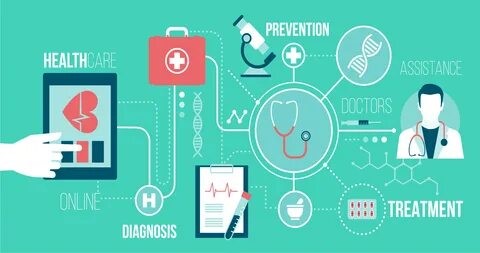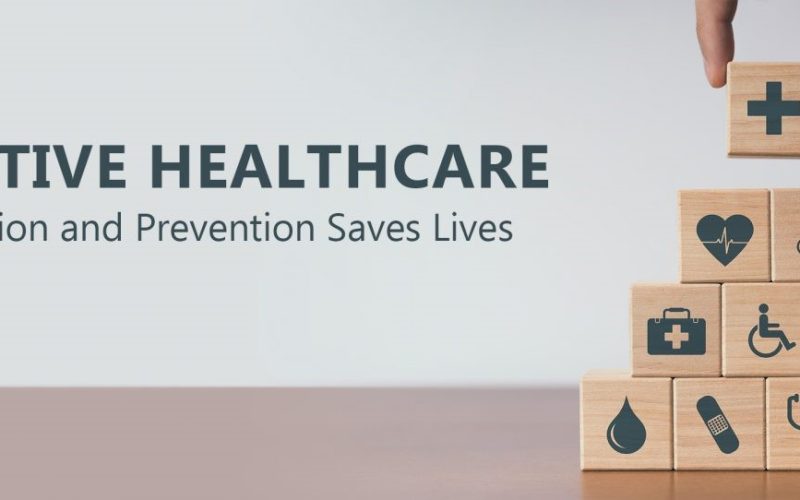In an era where medical advancements have reached unprecedented heights, the emphasis on preventive healthcare has never been more critical. Preventive healthcare, which encompasses measures taken to prevent diseases rather than treating them once they occur, plays a pivotal role in enhancing the quality of life, reducing healthcare costs, and ensuring the longevity of populations. This article delves into the significance of preventive healthcare, exploring its benefits, strategies, and the collective responsibility of individuals and healthcare systems in fostering a culture of prevention.
Benefits of Preventive Healthcare
Preventive healthcare offers a multitude of benefits that extend beyond individual well-being to societal and economic advantages.
- Improved Quality of Life: By focusing on early detection and intervention, preventive healthcare helps in managing and mitigating the onset of chronic diseases such as diabetes, hypertension, and cardiovascular conditions. Regular screenings and health checks enable individuals to maintain optimal health and enjoy a higher quality of life.
- Cost-Effectiveness: Treating advanced stages of diseases often requires extensive medical interventions, hospitalizations, and long-term care, which can be financially draining for both individuals and healthcare systems. Preventive measures, such as vaccinations, screenings, and lifestyle modifications, are significantly more cost-effective, reducing the economic burden on healthcare infrastructure.
- Increased Longevity: Preventive healthcare contributes to increased life expectancy by identifying and addressing potential health risks before they escalate. Early interventions and health education empower individuals to make informed decisions about their health, thereby enhancing their chances of leading longer, healthier lives.
Strategies in Preventive Healthcare
Effective preventive healthcare strategies are multifaceted, encompassing a range of practices aimed at maintaining and improving health.
- Vaccinations: Immunization programs are a cornerstone of preventive healthcare, protecting populations from infectious diseases. Vaccines have eradicated or significantly reduced the prevalence of diseases such as polio, measles, and smallpox, showcasing the profound impact of preventive measures.
- Screenings and Regular Check-Ups: Routine health screenings, such as mammograms, colonoscopies, and blood pressure checks, are vital for early detection of potential health issues. Regular check-ups with healthcare providers ensure continuous monitoring and timely intervention, preventing the progression of diseases.
- Health Education and Lifestyle Modifications: Educating individuals about the importance of a balanced diet, regular exercise, and avoiding harmful habits such as smoking and excessive alcohol consumption is fundamental to preventive healthcare. Lifestyle modifications play a crucial role in reducing the risk of chronic diseases and promoting overall well-being.
- Mental Health Awareness: Mental health is an integral component of preventive healthcare. Promoting mental health awareness, providing access to counseling and support services, and reducing the stigma associated with mental health issues are essential steps in ensuring holistic health.

The Role of Healthcare Systems
Healthcare systems play a pivotal role in the implementation and success of preventive healthcare initiatives. A robust healthcare infrastructure that prioritizes prevention can lead to substantial improvements in public health outcomes.
- Policy and Legislation: Governments and health authorities must enact policies that prioritize preventive healthcare. This includes funding for immunization programs, subsidies for health screenings, and regulations that promote healthy environments, such as smoke-free zones and nutritional labeling of food products.
- Access to Healthcare: Ensuring equitable access to healthcare services is fundamental to preventive healthcare. This involves reducing barriers to healthcare access, such as geographic, financial, and social obstacles, and providing comprehensive healthcare coverage for all individuals.
- Public Health Campaigns: Public health campaigns play a crucial role in raising awareness about preventive healthcare practices. Effective communication strategies, utilizing various media platforms, can educate the public about the importance of vaccinations, regular screenings, and healthy lifestyle choices.
- Collaboration with Community Organizations: Partnering with community organizations, schools, and workplaces can amplify the reach of preventive healthcare initiatives. Collaborative efforts can facilitate health education programs, vaccination drives, and wellness activities, fostering a community-wide culture of prevention.
The Individual’s Responsibility
While healthcare systems and policies are instrumental in promoting preventive healthcare, individuals also bear a significant responsibility in safeguarding their health.
- Proactive Health Management: Individuals should take an active role in managing their health by scheduling regular check-ups, adhering to vaccination schedules, and participating in recommended screenings. Proactive health management enables early detection and intervention, preventing the escalation of health issues.
- Adopting Healthy Lifestyles: Embracing healthy lifestyle choices, such as maintaining a balanced diet, engaging in regular physical activity, and avoiding harmful habits, is crucial in preventing chronic diseases. Individuals should seek reliable information from healthcare providers and make informed decisions about their health.
- Mental Health Care: Prioritizing mental health is essential for overall well-being. Individuals should seek support when needed, practice stress management techniques, and cultivate healthy relationships to maintain mental and emotional health.
- Health Literacy: Enhancing health literacy empowers individuals to understand and navigate the healthcare system effectively. This includes understanding medical advice, recognizing symptoms, and knowing when to seek medical attention.
Conclusion
Preventive healthcare is a cornerstone of modern medicine, offering a proactive approach to health and well-being. By prioritizing early detection, health education, and lifestyle modifications, preventive healthcare not only improves individual quality of life but also reduces healthcare costs and increases longevity. The collective efforts of healthcare systems, policymakers, and individuals are essential in fostering a culture of prevention, ensuring healthier and more resilient populations. As the adage goes, “An ounce of prevention is worth a pound of cure,” underscoring the timeless value of preventive healthcare in safeguarding our future.












